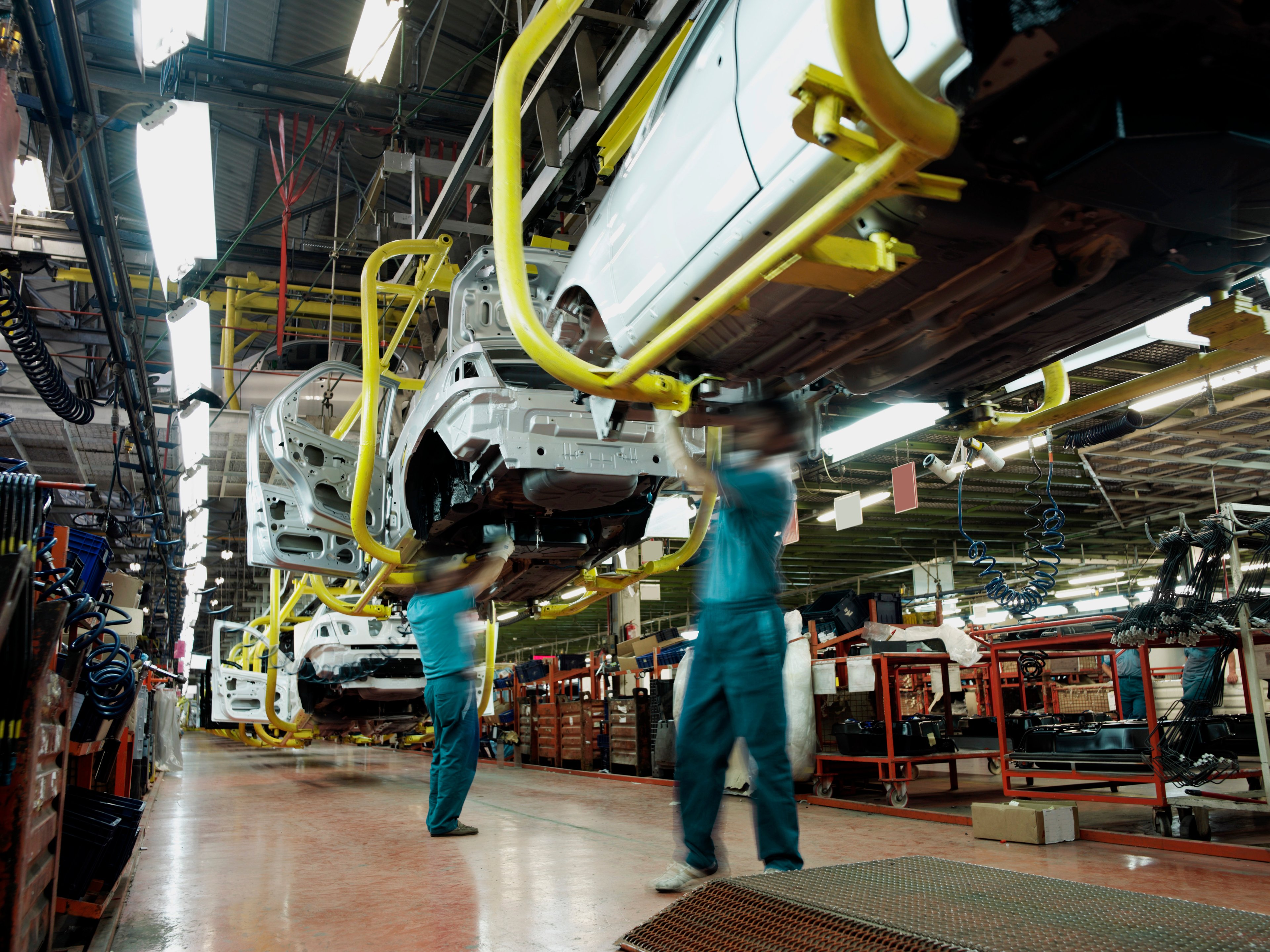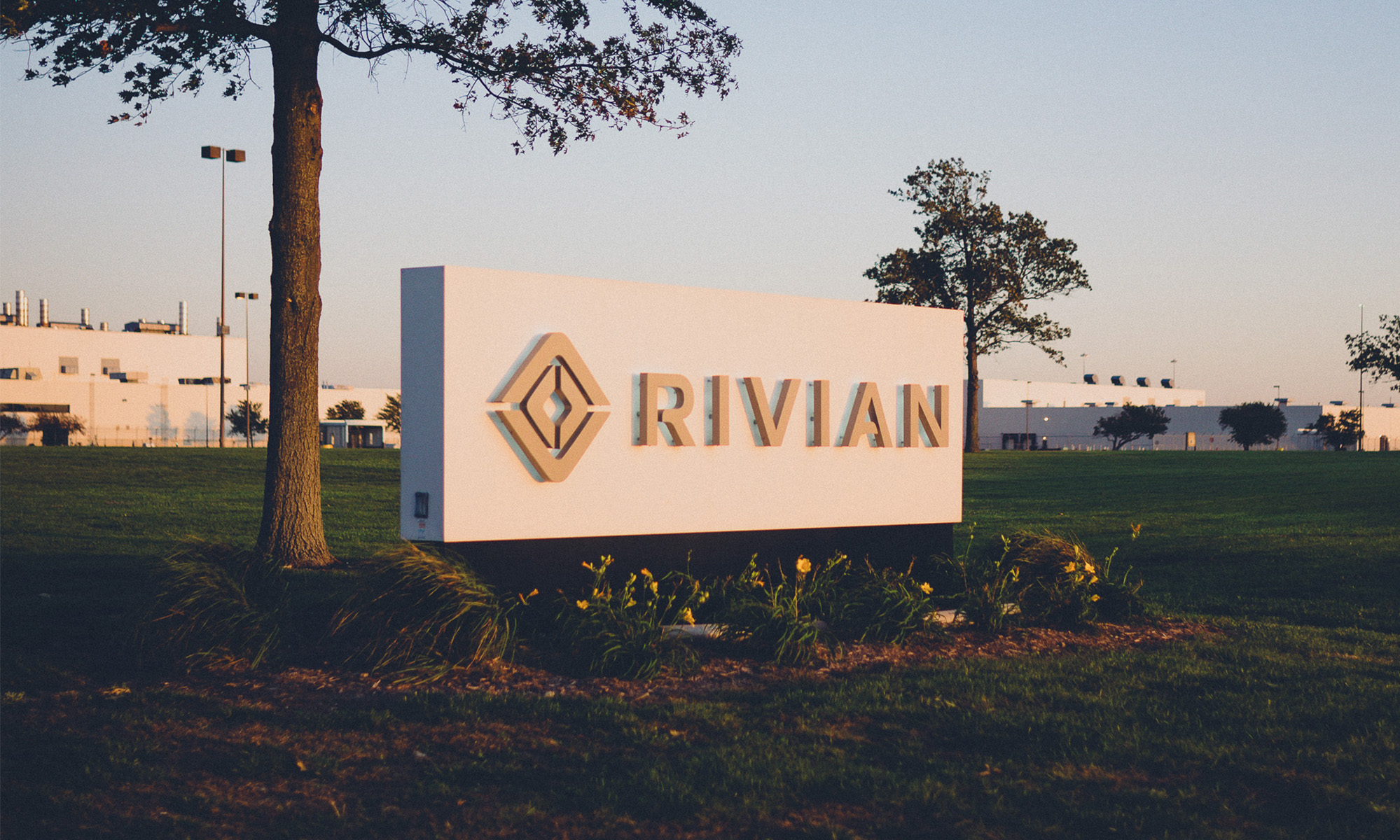Rivian Automotive (RIVN 2.29%) is a high-tech auto start-up that builds all-electric trucks and delivery vans. It has made a huge amount of progress with its business as it looks to become a sustainably profitable company.
That said, it still has a long way to go before it gets to that point -- which is why the $3.5 billion it is charging Germany's Volkswagen for access to its tech is so important. Here's what you need to know.
What does Rivian do?
As noted, Rivian is a U.S. automaker focused on electric vehicles, or EVs. It has honed in on a niche within the industry, as it only makes trucks and delivery vehicles, which are basically just a different kind of truck. It has a prominent partnership with Amazon, which has used Rivian trucks to support its expanding delivery efforts. That is basically just a traditional customer relationship since Amazon is simply buying delivery vehicles.

Image source: Rivian.
Still, the Amazon partnership has been very important. It provided Rivian with a reliable customer for its products at a time when it was just beginning to ramp up its production capabilities. It now has the capacity to produce around 50,000 EVs a year, which means it is running at scale. In fact, the effort in 2024 and 2025 has focused around streamlining production to improve profitability.
Its factory produces both consumer vehicles and delivery vehicles, but the Amazon relationship was a huge help. And it highlights one of Rivian's key goals -- selling its products to other companies. In the case of Amazon, that was a more typical customer relationship, but Rivian's aspirations include selling its technology to other companies, too.
Volkswagen is on board in a big way
This is where Germany's Volkswagen comes into the story. It has a long-term partnership with Rivian in which it is providing the upstart company with funding. Volkswagen has pumped cash into Rivian on multiple occasions as Rivian has continued to hit important development milestones. For example, Rivian "unlocked" $1 billion in cash from the German auto giant in the first quarter of 2025. That cash isn't expected to fully hit the balance sheet until the end of June 2025, but it will be an important infusion of funds as Rivian continues to invest in its business.
To put a number on how important Volkswagen's capital infusion will be, Rivian burned through around $600 million in cash in 2025's first quarter. While Rivian has around $7 billion in cash on its balance sheet, that pile of money won't last long if it keeps spending like it has been. It needs to have a ready source of additional capital.

NASDAQ: RIVN
Key Data Points
Volkswagen is happy to provide that cash so long as Rivian keeps advancing its technology and business. Assuming Rivian remains on track, there's another $2.5 billion available from the German car maker. Coupled with expectations for loans of up to $6.6 billion from the U.S. government, Rivian should have ample capital to keep spending on its business for years to come.
But the Volkswagen deal isn't just about the cash since Rivian is basically fostering a relationship with a company that could become a core, long-term technology customer as well.
All-American ingenuity is bringing in the cash
To be fair, Volkswagen isn't doing anything out of the kindness of its heart. It likely has high hopes for the technology in which it is investing. But that's the point for Rivian, too. It has high hopes that it develops a customer relationship that will help it become a sustainably profitable, and perhaps even growing, company.
And that's all built on Rivian's U.S.-built innovation. The stock isn't risk free, so only more aggressive investors will likely find Rivian attractive. But given the success it has achieved and the partners it has lined up, it looks like this upstart EV company could have a very bright future over the long term.





